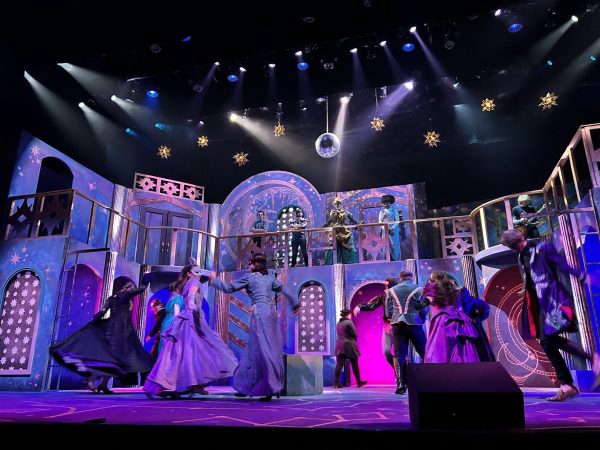A powerful duet
I had never heard anyone play a banjo before, not like this. On Thursday evening, Mar. 27, as part of the Master’s Series presented by UNC Wilmington, Béla Fleck and Abigail Washburn graced the stage of Kenan Auditorium. When I took my seat, I was there for a class assignment; two and half hours later, I was on my feet, feverishly applauding one of the more captivating musical performances I had ever seen.
Both Fleck and Washburn are skillful entrepreneurs of the banjo, Fleck a master of the “3-finger” banjo picking technique, and Washburn a powerful vocalist who also provides banjo support with another technique called “clawhammer.”
There are few in the world that could rival Fleck in his prowess with a banjo. Whether it was a supporting role in a song, or the spotlight was on just him, he delivered. And by delivered, I mean he astonished. Never had I imagined a banjo could produce such intricate melodies, and it was all done with such unassuming confidence. His comfortable, almost silly presence on stage completely contradicted the complexities of his banjo work.
Fleck’s skill with the banjo is undeniable, mesmerizing, and impossible to ignore. However, as I watched the concert progress, I realized that Fleck was not the one owning the stage: it was the woman beside him. Despite Fleck’s fifteen Grammy’s, Abigail Washburn, with her curling brown hair and brilliant smile, was the driving force of the performance. No, not with her banjo, that was obviously Fleck’s area of specialty, but with her presence. All the while Fleck was picking away at his banjo, he was looking at her. She carried the casual humor between each song. The most powerful thing about her stage-presence, however, was her voice. At some points, it was easy to zone out into the performance because of the slight monotony of two banjos bantering back and forth for two hours. However, I was always ripped right back into the performance when Washburn would sing. She just has one of those voices. It is a voice that is such a pure talent that it blankets the entire room with no risk of her notes falling out of tune.
Washburn, an avid traveler, considers China to be her second home. She brought some Chinese influence with her on stage, performing a few traditional Chinese songs. Fleck provided the intricate melodies needed to portray the story musically, while Washburn used her voice to retell the stories—in Chinese, I might add. Her fluidity in song with the Chinese language added another weapon to her arsenal of breath-taking talents.
I suppose I noticed Washburn’s incredible stage presence most when she was not on the stage. After a fifteen minute intermission, Fleck walked back on to the stage, unaccompanied by his partner, who is also his wife. Immediately, he looked slightly less comfortable on the stage. He grabbed his banjo, and took the microphone, “So…” he started, “um, does anyone have anything they want to hear?” A few shouts made their way from an otherwise quiet audience, and he began to play. The technical skills were there, no doubt, it is simply awe inspiring watching that man play the banjo. However, the comfort and the personality that I had seen on stage when Washburn was there with him had incrementally decreased.
The final set was more of the first— incredibly complex banjo, a beautiful voice and an electric duet. When I say duet, I would usually mean it in the musical sense. In the case of these two performers, however, it is much more than that. These two are passionate about their work and their skill, but even more so—each other. Through their music they demonstrate the pure chemistry and comfort between husband and wife, masters of the duet.









